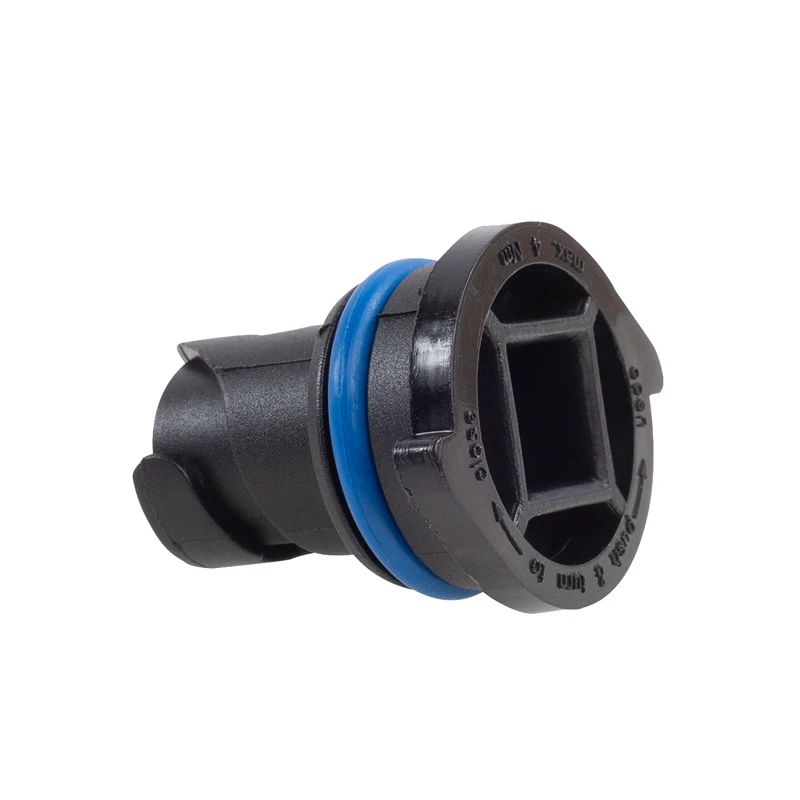axle oil seal
Understanding Axle Oil Seals Importance and Maintenance
Axle oil seals play a crucial role in the functioning and longevity of vehicles. These seals are designed to prevent the leakage of lubricating oil from the axle housing while keeping contaminants such as dirt, water, and debris out. While they are small components, their role is significant in ensuring that the vehicle's drivetrain operates smoothly and efficiently.
What Are Axle Oil Seals?
Axle oil seals are typically made from rubber or other suitable materials that can withstand the harsh conditions found in automotive environments. These seals are strategically placed around the axles to create a barrier, effectively sealing the lubricating oil within the axle housing. This oil is essential for reducing friction between moving parts, ultimately preventing wear and tear and extending the life of the axle components.
The Importance of Axle Oil Seals
1. Leak Prevention One of the primary functions of axle oil seals is to prevent oil leaks. Oil escaping from the axle can lead to severe damage to other components by causing them to run dry. When oil levels drop, friction increases, which can result in overheating and a complete failure of the axle assembly.
2. Contaminant Protection Axle oil seals also serve as a barrier against environmental contaminants. Dirt, water, and debris can compromise the integrity of the lubrication system. By keeping these elements out, oil seals ensure that the lubricating oil remains clean and effective.
3. Enhanced Performance A well-functioning axle oil seal contributes to optimal vehicle performance. When the axle operates smoothly due to adequate lubrication, the entire drivetrain experiences minimal friction and wear. This leads to better fuel efficiency and improved handling.
4. Cost-Effective Solutions Investing in quality axle oil seals is a cost-effective approach to vehicle maintenance. By preventing leaks and protecting against contaminants, they help avoid more extensive repairs that may arise from negligence. Timely maintenance can save vehicle owners significant expenses in the long run.
Signs of Worn or Failed Oil Seals
axle oil seal

Like all automotive components, axle oil seals can wear out over time. Regular inspection is essential to identify any signs of failure. Common symptoms of a damaged axle oil seal include
- Oil Leaks Puddles of oil beneath the vehicle, particularly near the axle area, can indicate a failing oil seal. - Unusual Noises Grinding or whining noises while driving may suggest that the lubrication is inadequate due to an oil leak. - Reduced Handling A vehicle not handling as well as it should might point to issues with the axle assembly, potentially linked to oil seal failure.
Maintenance Tips
1. Regular Inspections Periodically check your vehicle for leaks and inspect the axle seals during routine maintenance services. Early detection of a damaged seal can save considerable repair costs.
2. Quality Products When replacing axle oil seals, it is essential to use high-quality products that guarantee durability and performance. Cheap seals may lead to leaks sooner and necessitate frequent replacements.
3. Professional Assistance If you suspect a problem with your axle oil seals, consult a professional mechanic. Attempting to repair or replace seals without proper knowledge and tools can lead to more significant issues.
4. Fluid Checks Regularly check the axle lubricating oil levels and condition. If the oil appears dirty or smells burnt, it may be a sign that the seals are failing, and a change is required.
Conclusion
Axle oil seals may be small components, but they play a monumental role in the health of a vehicle's drivetrain. Understanding their function, recognizing the signs of failure, and committing to regular maintenance can ensure that your vehicle operates reliably for years to come. By investing in quality seals and maintaining them properly, vehicle owners can prevent costly repairs and enhance their driving experience.
-
The Ultimate Guide to Boat Propeller Bearings and Trailer Wheel Bearings
News Jul.31,2025
-
The Essential Guide to Marine Bearings and Boat Trailer Wheel Bearings
News Jul.31,2025
-
The Complete Guide to Heavy Duty Seals: Protecting Doors and Spaces Efficiently
News Jul.31,2025
-
Essential Guide to Marine Shaft Bearings and Boat Trailer Axle Bearings
News Jul.31,2025
-
Comprehensive Guide to Marine and Trailer Bearings for Safe Boating and Transport
News Jul.31,2025
-
Comprehensive Guide to Automotive Oil Seals: Protecting Your Engine and Shafts
News Jul.31,2025
-
Understanding Automotive Oil Seals: Essential Components for Engine and Shaft Protection
News Jul.30,2025
Products categories















